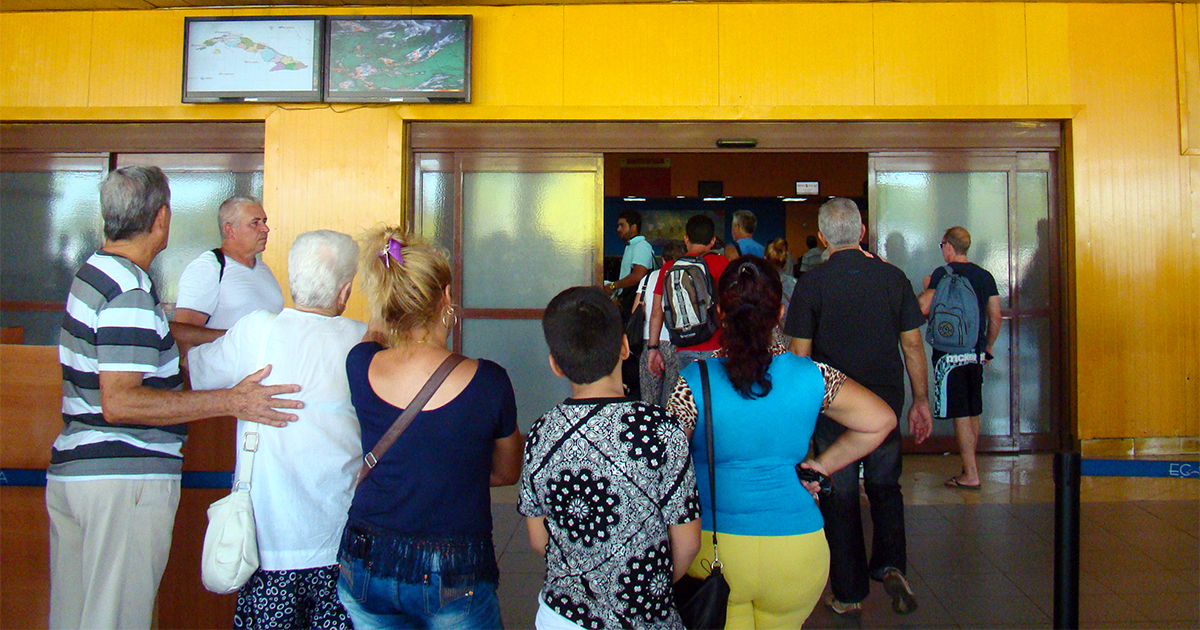
The Centers for Disease Control and Prevention (CDC) of the United States have issued a level 2 alert, on a scale of 4, due to the increase in cases of the Oropouche virus in Cuba.
U.S. authorities recommend that travelers take enhanced preventive measures to avoid contracting this arboviral disease and advise pregnant women not to travel to the island unless absolutely necessary.
This alert comes at a time when Cuba is facing an epidemiological crisis, exacerbated by the rapid spread of the disease throughout the country, following the confirmation of the first cases in Santiago de Cuba at the end of May.
On their website, the CDC warns that "multiple cases of Oropouche have recently been reported in American and European travelers returning from a trip to Cuba, indicating that there is an ongoing risk."
"Areas in Cuba with reported cases of Oropouche," can be read alongside a map published by U.S. health authorities highlighting 11 provinces.
These provinces are: Mayabeque, Matanzas, Villa Clara, Cienfuegos, Sancti Spíritus, Ciego de Ávila, Holguín, Santiago de Cuba, and Guantánamo.
However, it is confirmed by the Ministry of Public Health (MINSAP) of Cuba itself that the disease is already present throughout the national territory, including the Isle of Youth.
The CDC emphasizes in its notice the importance of preventing insect bites, especially from mosquitoes, during any stay in Cuba, as they are the main vectors of the Oropouche virus.
In addition, it is recommended that travelers continue to avoid insect bites for three weeks after their return to the United States, to reduce the risk of transmitting the disease to others.
In case the trip of pregnant women to Cuba cannot be postponed, these travelers are urged to strictly follow the prevention recommendations.
Oropouche, which is often confused with dengue due to the similarity of its symptoms, can occur in people of any age.
Symptoms include high fever, headache, muscle aches, joint stiffness, nausea, vomiting, chills, and sensitivity to light.
The CDC recommends that travelers who experience these symptoms during or within two weeks after their trip seek medical attention immediately and inform their healthcare provider about their recent trip to Cuba.
It is important for those who develop the disease to avoid taking aspirin and other non-steroidal anti-inflammatory drugs, such as ibuprofen, to reduce the risk of bleeding.
In addition, they should continue preventing insect bites during the first week of the illness to avoid further spread of the virus in areas where transmitting mosquitoes are active.
The Pan American Health Organization (PAHO) issued an epidemiological alert in early August, highlighting the severity of the situation in the Americas. Cases of deaths due to Oropouche have been reported, with the first ones recorded in the world at the end of July in Brazil.
The OPS has also expressed its concern about possible cases of transmission of the virus from a pregnant woman to the fetus, which could result in congenital anomalies.
Brazil confirmed a case of microcephaly and other malformations associated with the transmission of the virus, which has generated international scrutiny over the risks of Oropouche during pregnancy.
The CDC, in collaboration with PAHO and other international partners, is investigating these cases to better understand the dangers this disease poses, especially in pregnant women.
Imported cases in Europe
The cases of imported Oropouche virus in Europe have been increasing in recent weeks, mainly through travelers from Cuba. At least 19 cases have already been detected, according to data from the European Centre for Disease Prevention and Control (ECDC).
In the latest information about the behavior of this disease, the ECDC confirmed that the number of imported cases of Oropouche virus disease in Spain has risen to 12 between June and July, all related to travel to Cuba or Brazil, as reported recently by the Efe agency.
It also reports that the virus is currently present in Italy (5) and Germany (2); with eighteen cases having travel history to Cuba and one to Brazil.
In early August, the ECDC confirmed the two cases of Oropouche that it has recorded in Germany, while raising the number diagnosed in Italy to four.
In mid-July, the ECDC revealed the detection of six cases of the disease in Europe: three in Spain and the same number in Italy.
The Oropouche virus is present in all Cuban provinces, according to Dr. Carilda Peña García, Deputy Minister of the Ministry of Public Health (MINSAP).
In an interview granted to Canal Caribe, he indicated that there is "the circulation of two arboviruses with a very similar initial evolution in patients who seek health services, along with the detection of cases of Covid-19."
The situation is worsening and keeping the citizens of the island on alert, due to the fact that the Ministry of Health does not have the necessary equipment or supplies to confront the illness, not even for preventive measures.
The National Director of Epidemiology of MINSAP, Francisco Durán, acknowledged that the country does not have fuel to fumigate against mosquitoes.
What do you think?
SEE COMMENTS (1)Filed under: